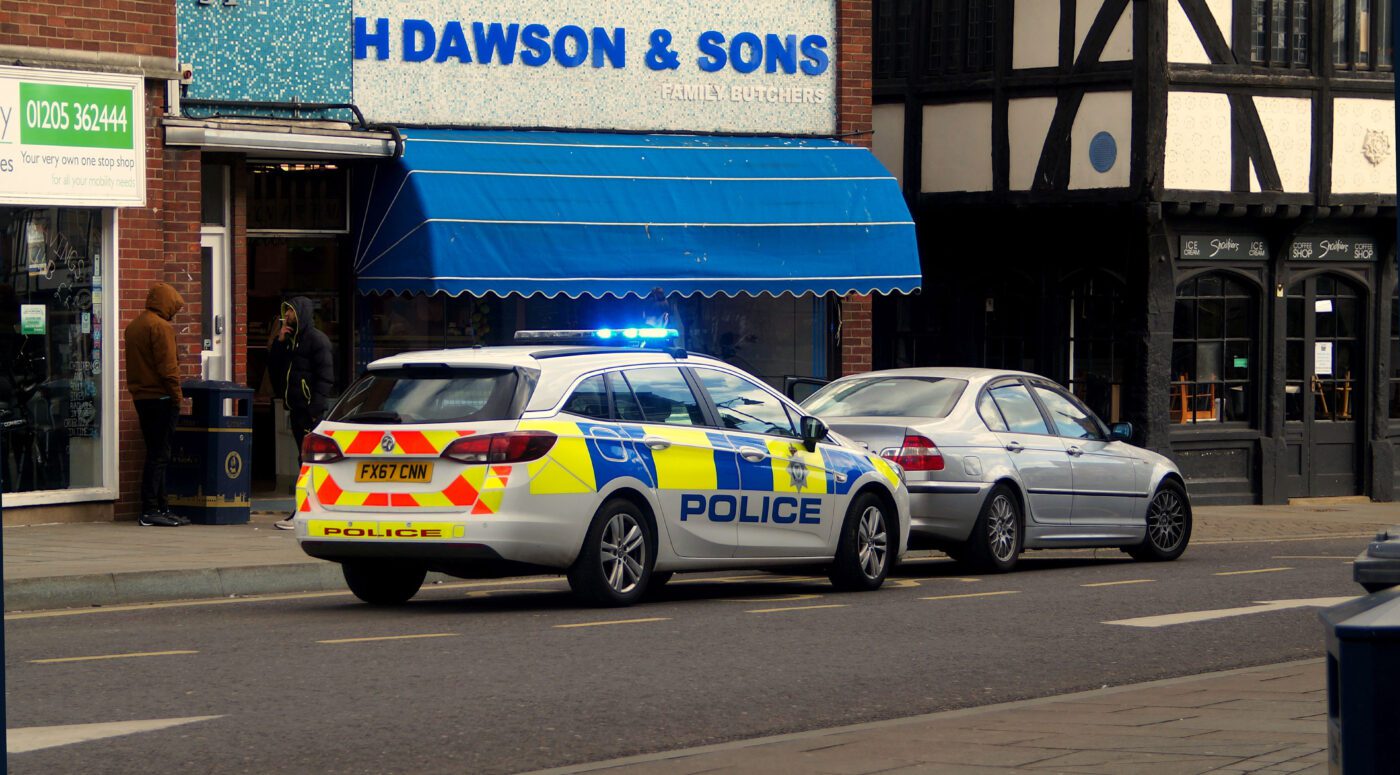

Conspiracy to kidnap is a grave criminal offence in the UK, carrying significant legal consequences. Such an accusation can be a distressing experience, with the potential for harsh penalties, including imprisonment. If you or someone you care about is facing charges of conspiracy to kidnap, you must seek legal advice immediately. This article provides an overview of the offence, gives examples of what might constitute the crime, delves into the specifics of sentencing, and explores the likelihood of imprisonment for first-time offenders. We’ll also give you information on how to get more help.
What is the offence of conspiracy to kidnap in the UK?
Conspiracy to kidnap in the UK is governed by a combination of statutes and common law. The core legislation is the Criminal Law Act 1977, specifically Section 1, which defines conspiracy as an agreement between two or more persons to carry out an unlawful act. In the context of kidnapping, this unlawful act involves the illegal taking or detention of a person against their will. The law does not require the act of kidnapping to be completed; merely the agreement to commit such an act is sufficient to constitute an offence.
For a successful prosecution of conspiracy to kidnap, the following elements must be established:
- Agreement: There must be evidence of an agreement between two or more persons. The agreement does not have to be formal or in writing; it can be implied from the conduct of the parties.
- Intent: The parties involved must have intended to agree and must have intended to achieve the outcome of the offence of kidnapping. This means they had the intent to unlawfully take and carry away a person.
- Unlawfulness: The prosecution must prove that the agreement was to commit something that is unlawful. In this case, it is the act of kidnapping.
- No Requirement for Overt Act: Unlike some other jurisdictions, in the UK, the crime of conspiracy is complete once the agreement is made. There is no requirement for any overt act to be taken towards the commission of the offence agreed upon.
The seriousness of this offence lies in its preparatory nature, suggesting a premeditated intent to infringe on an individual’s liberty. This crime is taken very seriously by the police and the courts due to the potential harm it poses to victims. Unlike simple kidnapping, conspiracy to kidnap often involves planning and coordination, which can elevate the perceived severity of the crime.
What are some examples of conspiracy to kidnap offences in the UK?
- Planning with others to abduct a wealthy individual for ransom.
- Arranging the kidnapping of a child during a custody dispute.
- Conspiring to detain a public figure for political motives.
- Organising a group to forcibly remove someone from a safe location.
- Planning to abduct a business rival for competitive advantage.
- Conspiring to kidnap a key witness to prevent their testimony in a trial.
- Arranging the abduction of a person for a forced marriage.
- Orchestrating a kidnapping as part of a human trafficking operation.
- Coordinating the abduction of a bank manager to facilitate a bank robbery.
- Plotting to kidnap a scientist or expert for their knowledge or skills.
- Conspiring to abduct a sports star to impact the outcome of a significant game or event.
- Organising a group to kidnap a juror to influence the outcome of a high-profile trial.
What happens if you are suspected of committing conspiracy to kidnap in the UK?
If you are suspected of conspiracy to kidnap, the investigative process is extensive and intricate, reflecting the serious nature of the offence. If you are suspected of committing conspiracy to kidnap in the UK, the following steps typically occur in the criminal justice process:
- Investigation: The investigation is usually conducted by the police. If there is enough evidence to suggest that a conspiracy to kidnap may have occurred, the police will gather evidence which may include witness statements, surveillance, and digital evidence.
- Arrest: If the police believe they have sufficient evidence, they can arrest the suspects involved in the conspiracy. The suspects are then taken to a police station for questioning. It is always a good idea to have a lawyer present at this stage.
- Detention and Questioning: Once arrested, suspects can be detained for a period of time to allow for questioning and further investigation. The exact duration of this detention can vary, but there are legal limits. Again, have a lawyer on side.
- Charging: If, after the investigation and questioning, the police believe there is enough evidence, they can charge the suspect(s) with the offence of conspiracy to kidnap.
- Bail or Released Under Investigation: After being charged, the suspect may be released on bail or released under investigation while awaiting trial, depending on the severity of the offence and the risk posed by the suspect. Bail conditions may be imposed.
- Court Proceedings: The case will then be brought before a court. Conspiracy to kidnap is a serious offence, typically handled by the Crown Court.
- Trial: During the trial, the prosecution must prove beyond reasonable doubt that the suspect(s) conspired to commit the offence of kidnapping. The defence will present their case to counter the prosecution’s evidence.
- Verdict: After hearing all the evidence, a jury (or a judge in some cases) will decide whether the suspect is guilty or not guilty.
- Sentencing: If found guilty, the court will impose a sentence. The severity of the sentence for conspiracy to kidnap can vary, potentially including a lengthy prison term.
- Appeals: The convicted individual has the right to appeal against their conviction or sentence if they believe there has been a miscarriage of justice.
Remember that every case is unique, and the legal process can vary based on the specifics of each case.
What is the sentence for conspiracy to kidnap?
Sentencing for conspiracy to kidnap in the UK is determined by a range of factors, with judges considering both the severity of the intended crime and the circumstances surrounding the conspiracy. Sentences can vary significantly based on these factors:
Aggravating factors include:
- Involvement of vulnerable victims (e.g., children).
- Use of weapons or threats of violence.
- Extensive planning and preparation.
- Previous criminal convictions.
Mitigating factors include:
- Lack of previous convictions.
- Minor role in the conspiracy.
- Genuine remorse and cooperation with law enforcement.
- Evidence of being under duress or coercion.
The maximum sentence for conspiracy to kidnap can be life imprisonment, particularly in cases involving severe aggravating factors. However, sentences can range from community orders to several years in prison, depending on the specifics of the case.
Will I go to prison if it is my first time committing conspiracy to kidnap?
If you’re a first-time offender facing charges of conspiracy to kidnap in the UK, determining whether you’ll receive a prison sentence involves a complex interplay of various factors. The absence of a criminal history may indeed work in your favour as a mitigating factor, but you must still understand that the gravity of a conspiracy to kidnap charge is such that it is taken very seriously by the courts.
The UK’s judicial system operates on guidelines that aim to balance the severity of the crime with the circumstances and characteristics of the offender. For conspiracy to kidnap, these guidelines consider aspects like the level of planning involved, the intended victim’s identity, and your specific role in the conspiracy. Aggravating factors, such as targeting a vulnerable person or planning significant violence, can lead to harsher sentences. Conversely, mitigating factors like a lack of previous convictions, expressions of genuine remorse, and demonstrable steps towards rehabilitation might influence the court towards leniency.
Given the potential harm and threat to public safety inherent in kidnapping plots, however, first-time offenders can and often do receive significant custodial sentences. The courts weigh the need to deter such serious crimes heavily, and this can override the mitigating factor of being a first-time offender.
Detailed statistics on sentencing trends specifically for first-time offenders in conspiracy to kidnap cases are not commonly available in the public domain. Case law and legal precedents can offer some insight, but each case’s unique nature makes it difficult to predict outcomes based solely on these factors.
While being a first-time offender may provide some degree of mitigation, the seriousness of a conspiracy to kidnap charge in the UK means that a custodial sentence is a very real possibility. The final outcome will depend on the specific details of your case and the discretion of the court, guided by the principles of proportionality and justice.
Where to get further help
Understanding the complexities of the offence of conspiracy to kidnap is crucial for anyone facing such charges. This article has outlined the offence, the legal process involved, sentencing guidelines, and considerations for first-time offenders. If you’re seeking more information or need a free consultation, contact the team at Stuart Miller Solicitors today. We offer expert guidance and support in such matters and can provide the necessary legal assistance to navigate through this challenging time.
OUR COMMITMENTS TO YOU:
-
Responsive
A legal expert will consult you within 24 hours of making an enquiry.
-
Empathetic
We will always treat you with trust, understanding and respect.
-
Specialised
Your case will be handled by an expert who specialises in your type of offence.
-
Proactive
We will take early action to end proceedings as soon as it is practically and legally possible to do so.
-
Engaged
You will be kept updated on your case at all times. We will provide a named contact available to answer your questions.
-
Caring
We understand this is a difficult and stressful time for you and your family. Our team will support you every step of the way.
-
Tenacious
We will never give up on your case. We fight tirelessly to get you the best possible outcome.

